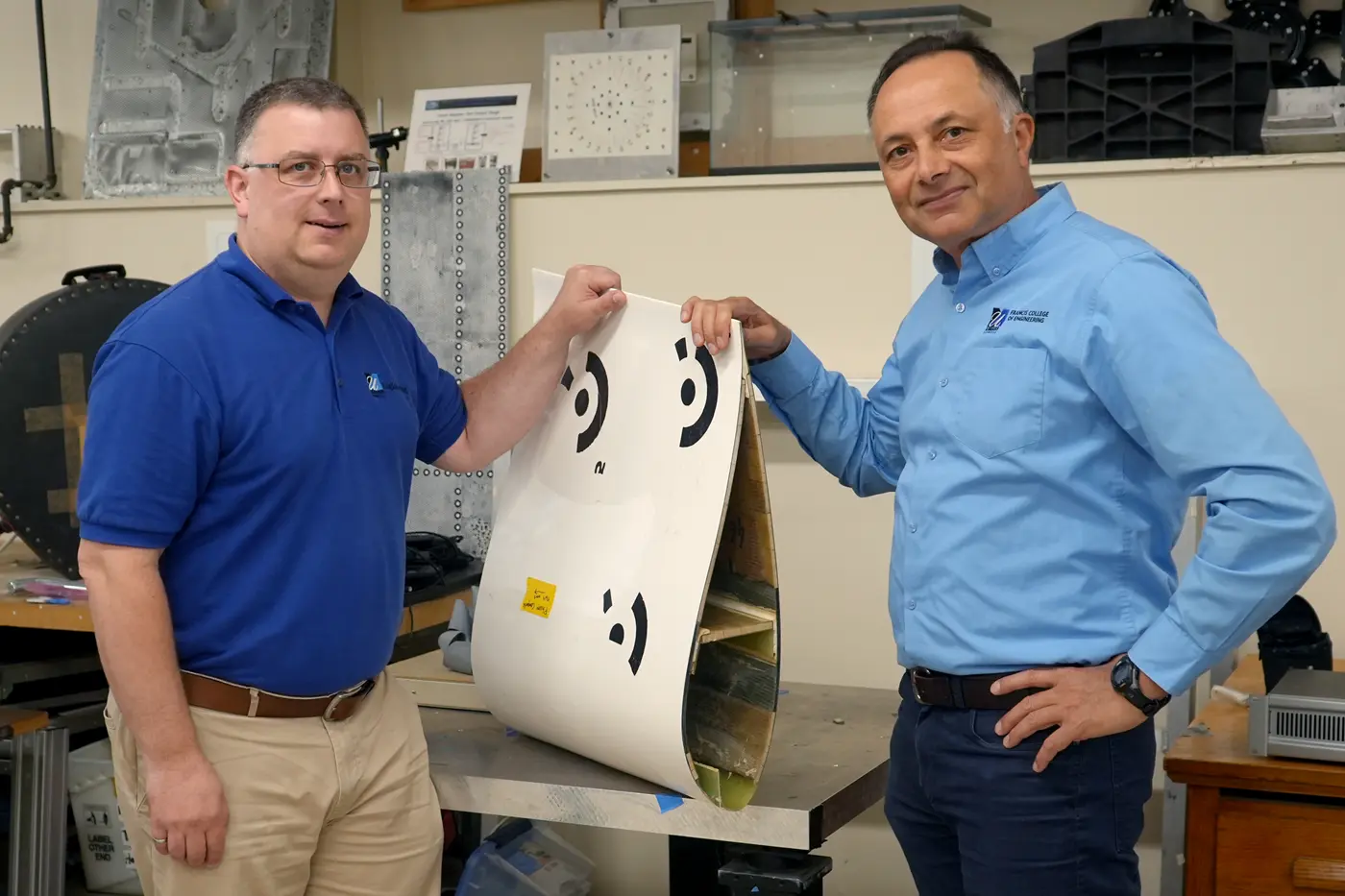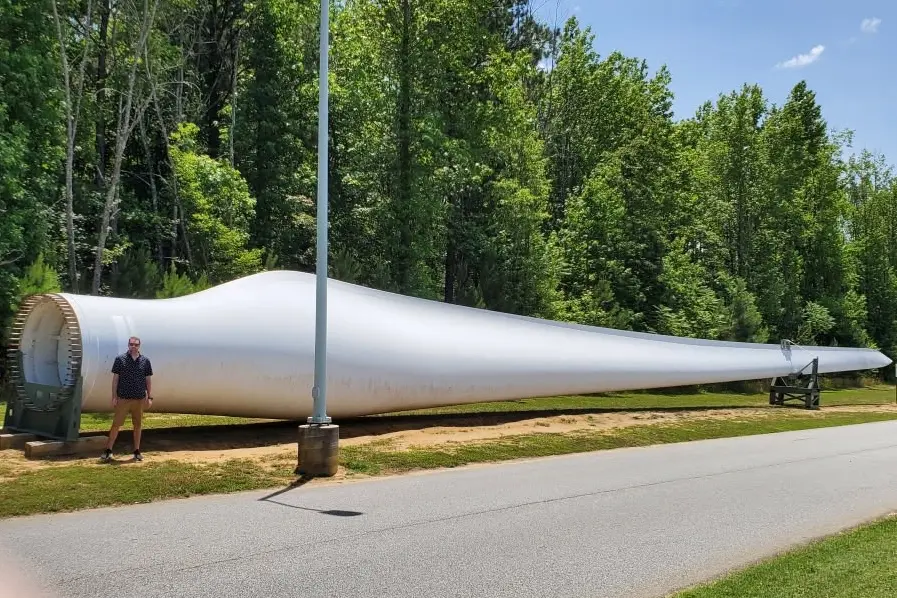 Image by Brooke Coupal
Image by Brooke Coupal
WindSTAR Director Christopher Niezrecki, right, holds a segment of a wind turbine blade with Patrick Drane, left, the center's assistant director for operations.
The Center for Wind Energy Science, Technology and Research (WindSTAR) continues to advance the wind energy sector, thanks to ongoing support from the National Science Foundation (NSF).
The NSF recently awarded $500,000 in funding to WindSTAR, an Industry-University Cooperative Research Center run by UMass Lowell and the University of Texas at Dallas. Each university will receive $250,000 over five years.
“The funding will keep the momentum of the center going,” says WindSTAR Director Christopher Niezrecki, a professor in the Department of Mechanical and Industrial Engineering. “We’re working on research innovations that have an impact on the wind industry, making it more cost-effective and reliable.”
The NSF has supported WindSTAR for more than a decade, bringing together industry professionals and university researchers to address the pressing needs of the wind industry. Member companies of WindSTAR, such as renewable energy provider Avangrid and energy technology company GE Vernova, present challenges to researchers at UMass Lowell and UT Dallas, who then go to their labs to develop solutions.
WindSTAR research projects focus on multiple areas of expertise: composites and blade manufacturing, foundations and towers, structural health monitoring, wind farm modeling, turbine control systems, and energy storage and grid integration.
“We have multiple faculty members, students and industry partners connected to each WindSTAR project,” says Patrick Drane, WindSTAR’s assistant director for operations. “The collaboration generates research that is not just relevant to a single company, but is important to the entire industry.”
 Image by Courtesy
Image by Courtesy
Joshua Morris ’16, ’18, ’22 stands in front of a wind turbine blade at GE Vernova in Greenville, S.C., where he works as a senior systems engineer.
Dozens of students and alumni have received hands-on experience working on industry projects through WindSTAR. While completing a master’s degree in mechanical engineering, Joshua Morris ’16, ’18, ’22 got involved in WindSTAR research on the materials of wind turbine blades. He worked closely with several member companies, including GE Vernova, which hired him for a full-time job after he earned his doctoral degree in mechanical engineering.
“What’s really unique about WindSTAR is the connection to industry,” says Morris, now a senior systems engineer at GE Vernova. “It showed me what the job options are in the wind industry and helped me build specific connections with industry professionals.”
Morris now serves as a mentor to WindSTAR projects.
“When I joined GE Vernova, one of my goals was to find my way back into WindSTAR,” he says. “I see the value of the research center.”
